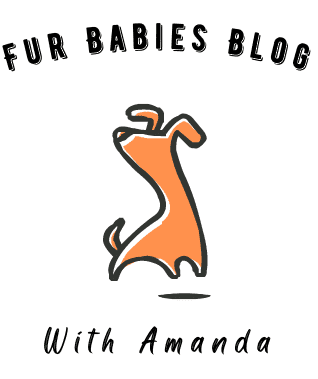Introduction
The most effective and safe choice is an antibacterial spray specifically designed for dogs. Introducing your pet to a hygiene routine is important, not only for their own health, but also to keep your home free from germs.
In this blog post, we'll explain why antibacterial sprays are so beneficial for your pet, discuss the different types that are available on the market, provide helpful considerations when choosing the right product for your pup and explain some key ingredients to look out for in any antibacterial spray you purchase.
What is antibacterial spray?
If you're looking for a way to keep your pet clean and healthy, then an antibacterial spray might be the perfect solution. Antibacterial sprays are specially formulated products that are effective at killing bacteria, preventing infections, and controlling any odours.
In this blog post, we'll explore what an antibacterial spray is, its benefits, different types available on the market, as well as some key considerations when choosing the right product for your pet. So, what exactly is an antibacterial spray? Essentially, it's a product that uses specific chemicals to kill or control harmful bacteria on surfaces.

This makes them an invaluable tool in preventing and treating skin infections in pets such as hot spots and fungal skin infections. When it comes to types of antibacterial sprays for dogs specifically, most contain active ingredients like ethyl alcohol or hydrogen peroxide. Ethyl alcohol-based sprays are the most common because they rapidly kill a wide range of microorganisms on contact and evaporate quickly from surfaces.
Hydrogen peroxide-based sprays are also popular due to their effectiveness at killing off bacterial infections like pyoderma. When choosing the right antibacterial spray for your pet, there are several things you'll want to consider beforehand.
First, you'll want to make sure that the product you choose is safe for your pet – check both active ingredients used, as well as whether the product has been tested by certified laboratories or regulators such as EPA or FDA. Also look into ease of use and application – will you have to smother your pup with layers of wet spray or can you simply mist them lightly?
Some key ingredients that should be present in any quality antibacterial spray include emollients (to soothe irritated skin), essential oils (for scent if desired), organic acids (to keep bacteria away) and antifungal agents (such as ketoconazole). Now that you know a bit more about what an antibacterial spray is and how it works, take some time to review popular brands available on the market today before making your final choice!
Benefits of using an antibacterial spray on dogs
If you're looking for a safe and effective way to keep your dog clean and healthy, then an antibacterial spray might be the perfect solution. Antibacterial sprays are specially formulated products that can help prevent infections, control unpleasant odours, and even fight stubborn skin conditions like hot spots. In this blog post, we'll take a look at the benefits that antibacterial sprays offer to dogs, what active ingredients are used in them, as well as some key considerations when selecting the right product for your pup.
First and foremost, let's talk about the major benefits of using an antibacterial spray on your dog. Asides from killing bacteria on contact and controlling any odours, antibacterial sprays can also help soothe irritation or inflammation caused by minor injuries, irritating substances like grass seed or foxtail, or even an allergic reaction. With regular use, these sprays can help keep skin infections away while also ensuring that your pet remains clean and healthy.
Most antibacterial sprays contain active ingredients such as ethyl alcohol or hydrogen peroxide. Ethyl alcohol-based sprays have been shown to rapidly kill a wide range of microorganisms on contact while evaporating quickly from surfaces – this makes them ideal at treating minor wounds and preventing everyday bacteria from causing harm.
Hydrogen peroxide-based sprays are another popular option due to their effectiveness at tackling larger bacterial infections like pyoderma. When selecting an antibacterial spray for your dog, it's important to do your research first! Be sure to check both active ingredients used as well as whether the product has been tested by certified laboratories or regulators such as EPA or FDA for safety.
You'll also want to consider ease of use – does it require long contact time with wet spray? Or is it simply a simple misting process? Finally, there are some key ingredients you should definitely look out for in any quality antibacterial spray – emollients to soothe irritated skin; essential oils (for scent if desired); organic acids (to keep bacteria away); antifungal agents (such as ketoconazole), which fight fungal infections; and antimicrobial agents (like lactic acid), which have proven effective against certain types of fungi too!
Now that you know more about why using an antibacterial spray is so great for keeping your pup clean and healthy, why not give one a try today?

Types of Antibacterial Spray
Different kinds of ingredients in various sprays
In this post, we'll explore what ingredients can be found in antibacterial sprays and how they differ from other types of cleaning products.
The two most common active ingredients used in antibacterial sprays for dogs are ethyl alcohol or hydrogen peroxide. Ethyl alcohol-based sprays are the most commonly seen as they have been clinically proven to rapidly kill a wide range of microorganisms on contact while evaporating quickly from surfaces – making them ideal at treating minor wounds and preventing everyday bacteria from causing harm. Hydrogen peroxide-based sprays are also popular due to their effectiveness at tackling larger bacterial infections like pyoderma.
Besides these key ingredients, there might be some other ingredients present in different kinds of antibacterial sprays – depending on their purpose. For example, many antifungal sprays contain chlorhexidine gluconate which is effective against yeast and fungal skin infections; some even contain aloe vera for added calming effect and to soothe any irritation that may occur after application.
On the other hand, antiseptic wound sprays typically target dog bites or cuts using an antibiotic solution such as Triple Antibiotic Ointment (containing Bacitracin). These solutions effectively reduce the chance of infection by killing off harmful microorganisms that may come into contact with an affected area.
And finally, laundry detergents often contain special enzyme blends that clean away bacteria without stripping away any essential oils or natural protective barrier from pets' fur or skin – these solutions do not actually provide “antibacterial” action but may instead help keep pet beds hygienic by removing harmful germs. So there you have it – when selecting an antibacterial spray for your pet, make sure to assess both active ingredients used as well as any additional add-ons like emollients and antimicrobial agents so you know exactly what kind of protection your four legged friend is receiving!
Pros and cons of each type
Every type of antibacterial spray offers distinct benefits, but they also have their drawbacks. To help you decide which one is right for you and your pup, let's take a look at the pros and cons of each type.
Ethyl alcohol-based sprays are great at killing bacteria on contact, plus they evaporate quickly to leave surfaces clean and dry. However, these sprays should never be used on open wounds as they may cause skin irritation or other problems.
Additionally, alcohol sprays are not suitable for non-porous surfaces such as carpets. Hydrogen peroxide-based sprays are very effective against larger bacterial infections like pyoderma and can also help treat minor cuts and scrapes. That said, hydrogen peroxide can be too strong for some pups’ skin so use this type of spray with caution!

Laundry detergent can help keep pet beds clean without stripping away any essential oils from fur or skin – however be aware that these solutions don't actually provide an antibacterial action so infection risks remain elevated if multiple pets are using the same bedding.
Finally, antifungal sprays containing chlorhexidine gluconate are great at treating yeast infections and most fungal skin infections in dogs – however they do require long contact times to be fully effective so beware that your pup might end up getting sprayed multiple times before being fully treated! So when it comes to choosing the right antibacterial spray for your pet, make sure to keep the pros and cons in mind.
A quick item check in their first aid kit should include a few choices of products that cover all bases to ensure complete protection!
How to Choose the Right Antibacterial Spray for your Dog
Factors to consider when selecting a spray
Selecting the right antibacterial spray for your pup can make all the difference in ensuring their wellness and safety. Here are some factors to consider when choosing a suitable product for your canine friend:
First, think about what type of bacteria or infection you want to target. Antifungal sprays containing chlorhexidine gluconate are great at treating yeast infections and most fungal skin infections, while hydrogen peroxide-based sprays are better suited for larger bacterial skin problems such as pyoderma.
Next, consider the active ingredients. Ethyl alcohol is the most commonly seen active ingredient as it has been clinically proven to rapidly kill a wide range of microorganisms on contact, but hydrogen peroxide sprays can also be effective at tackling more serious infections. Make sure to avoid products with harsh chemicals like chlorine bleach as these can be too intense and damaging for your pup's skin!
Your choice of disinfectant spray should also factor in its application – aerosol cans may be easier to apply but they might not work as well on hard surfaces like stainless steel or clean carpets; while flowable solutions may be better at killing germs on porous surfaces but require more effort from you.
Finally, pay attention to any specific warnings that come with each product – this could include things like ‘not safe for use around puppies' or ‘for external application only'. This way you'll know exactly how to use the spray and if it's the best choice for your pet's unique needs.
Ultimately, choosing an antibacterial spray wisely can help ward off common bacterial infections in dogs – from minor skin issues to potentially dangerous viruses like canine parvovirus – and aid in the healing process too!
Best Antibacterial Sprays for Dogs
Overviews of popular brands
Finding the right antibacterial spray can be a tricky business. To help make your choice easier, here's a quick overview of some of the most popular products available on the market today: For tackling general bacterial skin infections and minor cuts and scrapes, Ethyl alcohol-based sprays are an excellent option.
They kill bacteria on contact and evaporate quickly to leave surfaces clean and dry. However, these types of sprays should never be used on open wounds as they may cause skin irritation or other problems.
If you're looking for a solution to larger bacterial infections like pyoderma in pets, hydrogen peroxide-based sprays might be the answer. They offer effective relief with minimal risk of skin damage – however use caution as hydrogen peroxide can be too strong for some pups’ skin!
When it comes to routine cleaning, laundry detergents are great at keeping pet beds clean without stripping away any essential oils from fur or skin – but note that these solutions don't provide an antibacterial action so infection risks remain elevated if multiple pets are using the same bedding.
A good alternative would be antiseptic products that contain natural essential oils such as lavender oil or peppermint oil which have antibacterial properties and leave surfaces smelling fresh.
Finally, antifungal sprays containing chlorhexidine gluconate are great at treating common yeast infections like ringworm and most fungal skin infections in dogs – however they do require long contact times to be fully effective so beware that your pup might end up getting sprayed multiple times before being fully treated!

Advantages and disadvantages of each brand
Making the right choice of antibacterial spray for your pet can be a tricky decision, so let's take a look at each type and explore the advantages and disadvantages of each. The most widely available antibacterial spray is Ethyl alcohol-based solutions. These are usually inexpensive, easy to find and ideal for tackling bacterial skin infections on contact.
However, they should never be used on open wounds as they may cause skin irritation or other problems. Hydrogen peroxide-based sprays are powerful enough to tackle larger bacterial infections like pyoderma in pets – however they're not as gentle on the skin and may result in hair loss or mucous membrane irritation if overused. Plus, hydrogen peroxide isn't suitable for general cleaning tasks such as floor cleaners or pet beds.
Antifungal spray containing chlorhexidine gluconate are great at dealing with common fungal infections like ringworm without relying too heavily on harsh chemicals – however, this type of spray requires contact times of up to two or three minutes before it becomes effective and these applications can become laborious when treating multiple wounds.
For pet owners seeking more natural products, there are also some herbal-based antiseptic sprays that rely on essential oils such as lavender oil or peppermint oil for their antibacterial properties – however these solutions may not be as effective at killing bacteria compared to harsher chemical ingredients and could still cause irritation on a pup's sensitive skin.
Finally, saline solution mixtures made by combining 1 gallon of water with 1 teaspoon of salt and spraying it directly onto your pet's wounds or infection areas have been known to reduce swelling while simultaneously disinfecting the wound – however this solution needs to be sprayed 2-3 times a day for ideal results so it might require a bit of extra effort from you!
Ultimately, choosing between a plethora of options can be daunting but considering the pros and cons above should help make picking the best product easier – just remember that all pets have unique needs so choose your antiseptic spray carefully!
What is the best antibacterial spray for treating bacterial skin infections on dogs?
For tackling general bacterial skin infections and minor cuts and scrapes, Ethyl alcohol-based wound spray is an excellent option. They kill bacteria on contact and evaporate quickly to leave surfaces clean and dry. However, these types of sprays should never be used on open wounds as they may cause a skin problem or similar irritations.
How do I clean my pet's bed without causing any skin or fur issues?
Laundry detergents are great at keeping pet beds clean without stripping away any essential oils from fur or skin – but note that these solutions don't provide an antibacterial action so infection risks remain elevated if multiple pets are using the same bedding. A good alternative would be antiseptic products that contain natural essential oils such as lavender oil or peppermint oil which have antibacterial properties and leave surfaces smelling fresh.
Are there any pet-friendly cleaning products available on the market?
Yes! There are plenty of pet-safe cleaners available nowadays, ranging from all-purpose floor cleaners, those that help keep a clean carpet, to shampoos specially designed for itchy skin and ear infections. Just make sure to check labels carefully for any allergies your pup may have before purchasing!
Is there a natural solution for treating fungal infections in small animals?
Antifungal sprays containing chlorhexidine gluconate are great at treating common yeast infections like ringworm and most fungal skin infections in dogs – however they do require long contact times to be fully effective so beware that your pup might end up getting sprayed multiple times before being fully treated!



